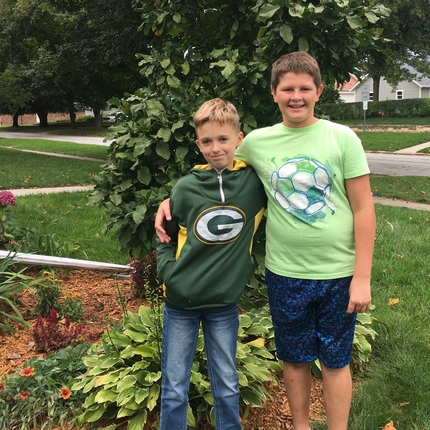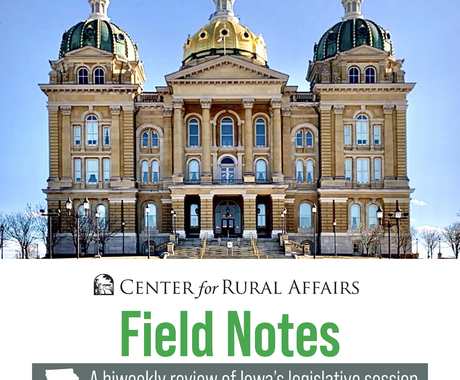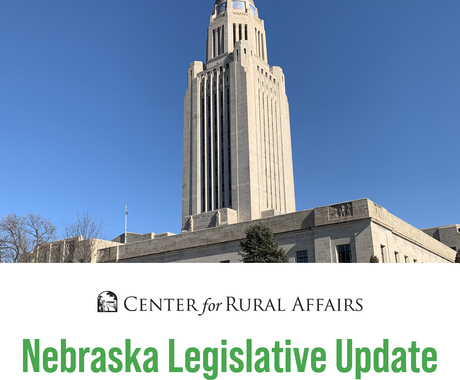By Kate Hansen, former staff member
In many ways, Jack Spence and Thomas Sauer are normal sixth grade students.
Jack enjoys playing sports, Thomas’ favorite school subject is social studies, and the two boys have been friends since their elementary years.
In recent months, the duo has been advocating for leaders to prioritize our climate on a national political scale. As presidential candidates flood through their hometown ahead of the Iowa caucuses, the boys are making sure candidates hear questions about the changing climate and its impact on rural Iowa, from the youth.
Jack and Thomas live with their families in the rural community of Nevada, Iowa, which is also home to a Center for Rural Affairs office. Every four years, presidential hopefuls flock to Iowa to campaign. In Nevada, many campaign events are organized by Jack’s father, Luke Spence, who serves on the city council.
“I’ve been going to all the events… because when I turn 18, I don’t want to just jump in and be like, ‘what happened?’” Jack said. “I want to know what happened while I was a kid.”
In the past few months, the boys have met several presidential candidates. During their interactions, they ask the candidates about their plans to address climate change. To Jack and Thomas, it is a pressing issue on all sides of the political spectrum, and they want to see that the candidates have concrete plans to address it.
Jack and Thomas are not alone. A recent study conducted by the Iowa Science Survey indicates 79 percent of Iowans would like candidates from both parties to have a plan to address climate change.
While the survey was a chance for adults to weigh in on the subject, the boys believe it’s important for questions to also come from the youth.
Thomas says some candidates are “surprised to see that kids like us would ask these questions,” but the connection between age and the environment is actually very strong.
“It affects not only our future, but our opportunities in the future,” he noted. “I would like to see more kids involved. Many kids have great ideas.”
“My generation is going to be the one that fixes [our climate],” Jack said. “We should know what’s happening and what kind of work is going to be in the future.”
Thomas and Jack would like to see more people asking these important questions and recommend a first step as “trying to do some research and learn more.”
In the meantime, the boys will continue their efforts to keep the climate change discussion central in central Iowa.




